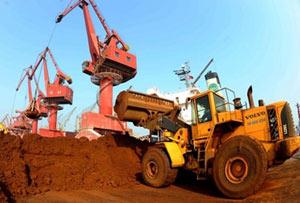BEIJING - Activity in the Chinese service sector grew markedly in October, with the seasonally adjusted Business Activity Index rising to 56.4 from 55.2, HSBC said in a report on Wednesday.
The rate of growth quickened from September's 19-month low but still remained below the long-run series average of 57.8.
"The modest improvement in the HSBC China Services PMI translated into faster job creation. This should in turn provide solid support for private consumption and demand for services in the coming months, despite the ongoing tightening of the property market," said Qu Hongbin, chief China economist and co-head of Asian Economic Research at HSBC.
New business received by Chinese service providers continued to rise in October, with the growth rate easing to its weakest in four months. Companies operating in the rental and business activities sector reportedly saw a slowdown in new business growth as government policies aimed at limiting property price hikes took hold, according to the report.
Backlogs of work in China's service sector fell in October, extending the current period of decline to six months, it said.
The rate at which outstanding business volumes were depleted was only modest, but slightly faster than the long-run trend. "The latest decrease suggests that spare capacity remains in the sector, despite a marked increase in new work," the bank said.
The degree of Chinese service providers' optimism dipped to the third-lowest since the start of the series in November 2005. Government policies aimed at reining in growth in the property sector were cited as a reason for the sagging confidence.
The service sector is a focal point for the government to work out the challenges of restructuring the economy and keeping a growth rate that is adequate for accommodating employment, analysts said.
"The sector can be very employment-intensive and it's domestically based. We see it has enormous potential in the future and it should be developed further as part of China's efforts to move its driver of economic growth away from export-oriented industries to domestic sources," Paul Heytens, Asian Development Bank (ADB) country director for China, told China Daily in an earlier interview.
Industrial output from China's services sector contributed 42.6 percent of the country's GDP in 2009, 0.8 percentage points higher than that of the previous year, according to the National Bureau of Statistics.
The ADB said that including services in the value-added tax (VAT) base could further advance economic rebalancing and raise the revenue of local governments, increasing their capacity to provide public services.
"VAT is levied only on manufacturing, while services are subject to a business tax that raises a much smaller amount. Given local governments' heavy dependence on VAT revenue, they have a strong incentive to promote manufacturing rather than services," said the ADB in its outlook report for China that was updated on Sept 28.
 Special Coverage: Rare as it is
Special Coverage: Rare as it isPing Xinqiao, an economist at Peking University, said although fiscal revenue collected through sales tax from the service sector as a whole is lower than taxes imposed on the manufacturing industry, the burden on modern services such as finance, logistics and IT is still too heavy.
Xu Chen, 27, who set up his own services business in Shanghai after quiting his job at a global consumer goods company, said considerable communication costs with different levels of government are a higher barrier than taxes for those who want to develop their own service outlets.
"Every official knows that the country is making efforts to promote services, but usually it will take you no less than one year to get a food-processing license if you want to open a restaurant," he said.




